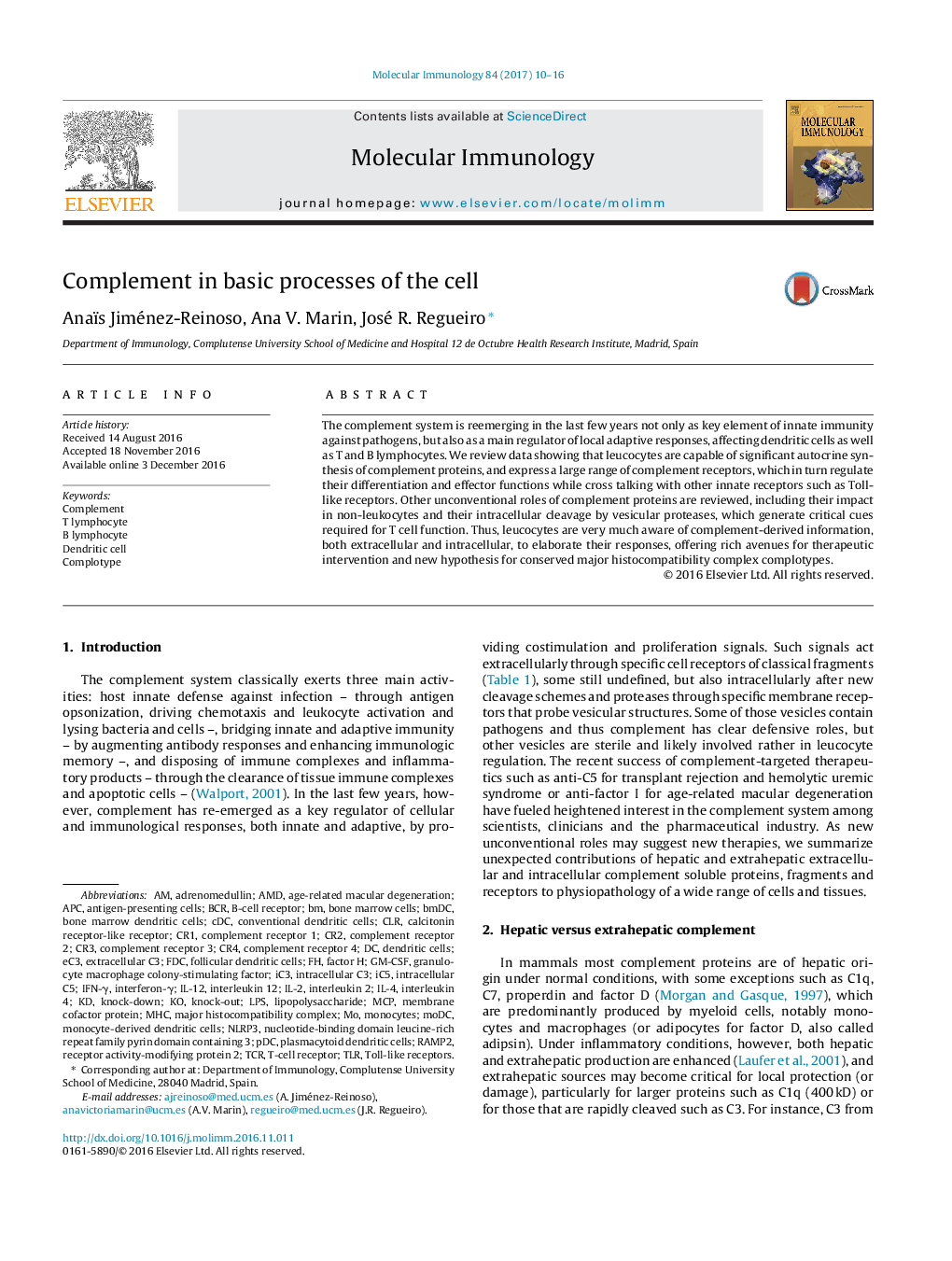| Article ID | Journal | Published Year | Pages | File Type |
|---|---|---|---|---|
| 5591955 | Molecular Immunology | 2017 | 7 Pages |
â¢Extrahepatic and autocrine complement influence their local behavior.â¢Complotypes can tilt complement activation toward inflammation.â¢Extracellular complement regulates dendritic cell differentiation.â¢Extracellular complement regulates B cell function through CR and TLR crosstalk.â¢Intracellular C3 and C5 cleavage have crucial autocrine roles in T-cell function.
The complement system is reemerging in the last few years not only as key element of innate immunity against pathogens, but also as a main regulator of local adaptive responses, affecting dendritic cells as well as T and B lymphocytes. We review data showing that leucocytes are capable of significant autocrine synthesis of complement proteins, and express a large range of complement receptors, which in turn regulate their differentiation and effector functions while cross talking with other innate receptors such as Toll-like receptors. Other unconventional roles of complement proteins are reviewed, including their impact in non-leukocytes and their intracellular cleavage by vesicular proteases, which generate critical cues required for T cell function. Thus, leucocytes are very much aware of complement-derived information, both extracellular and intracellular, to elaborate their responses, offering rich avenues for therapeutic intervention and new hypothesis for conserved major histocompatibility complex complotypes.
